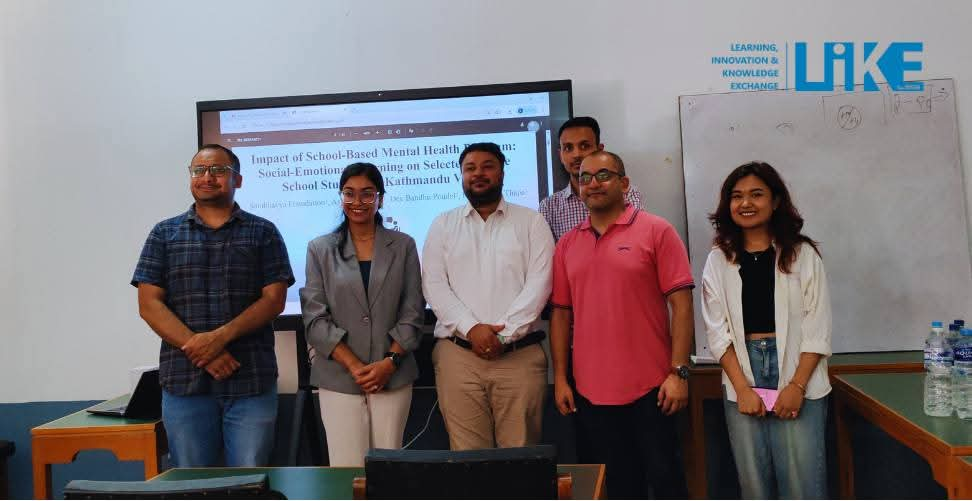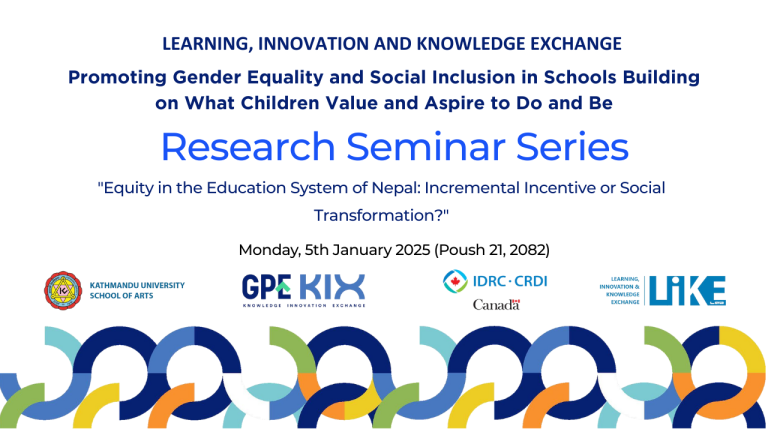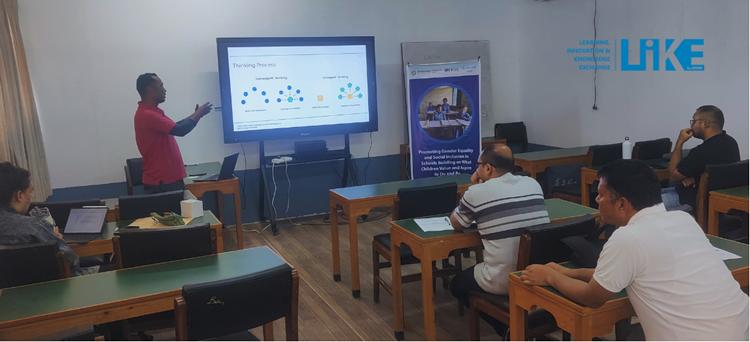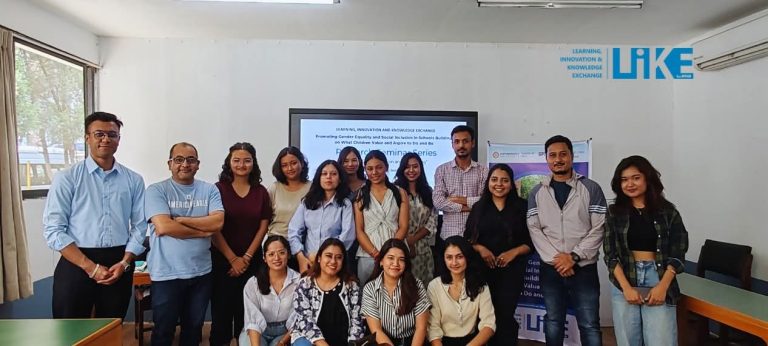
KATHMANDU, NEPAL, JUNE 26th, 2025 – The Learning, Innovation and Knowledge Exchange (LIKE) Lab organized a research seminar on “Impact of School-Based Mental Health Program (SEL) on Selected Middle School Students in Kathmandu Valley”. The session explored the integration of Social Emotional Learning (SEL) into school curricula and its role in fostering students’ emotional intelligence and responsible decision-making.
Facilitated by Mr. Saurav Rajbhandari, the seminar featured a presentation by Ms. Shrima Chudal of Sambhavya Foundation, who shared insights from their SEL program designed for middle school students in Nepal.
Key Highlights of the Presentation
- The SEL initiative integrates Social Emotional Learning, Digital Citizenship, and Sexual Reproductive Health into the middle school curriculum to promote emotional intelligence, communication, and responsible behavior.
- The research aimed to evaluate the SEL program’s impact on emotional and social competencies and assess students’ ability to manage emotions and build healthy relationships.
- Pre-test/post-test intervention was conducted over one academic year with 735 students (Grades 6–7, ages 11–14).
- Tools like SELS-12 Likert scale were employed in the study. It was further analyzed using Wilcoxon signed-rank test and Spearman’s rho for validity.
- The study found that overall SEL scores improved from M = 40.38 to M = 42.43. The findings indicated moderate gains in support seeking, responsibility, and positivity. Along with that stability across competencies increased, showing consistent student responses post-intervention.
Reflections and Discussion
During the discussion, participants highlighted:
- The need for experiential learning activities to deepen emotion recognition skills.
- Importance of a 6-month follow-up assessment to measure sustained impact.
- Recommendations to scale the SEL model to additional schools and ensure contextual relevance for Nepal’s education system.
Way Forward
The seminar concluded with the need to refine the program for areas such as adaptability and emotional recognition. Participants also emphasized the importance of holistic school engagement models, including training for staff and parents, to sustain positive outcomes for students’ mental health and well-being.



